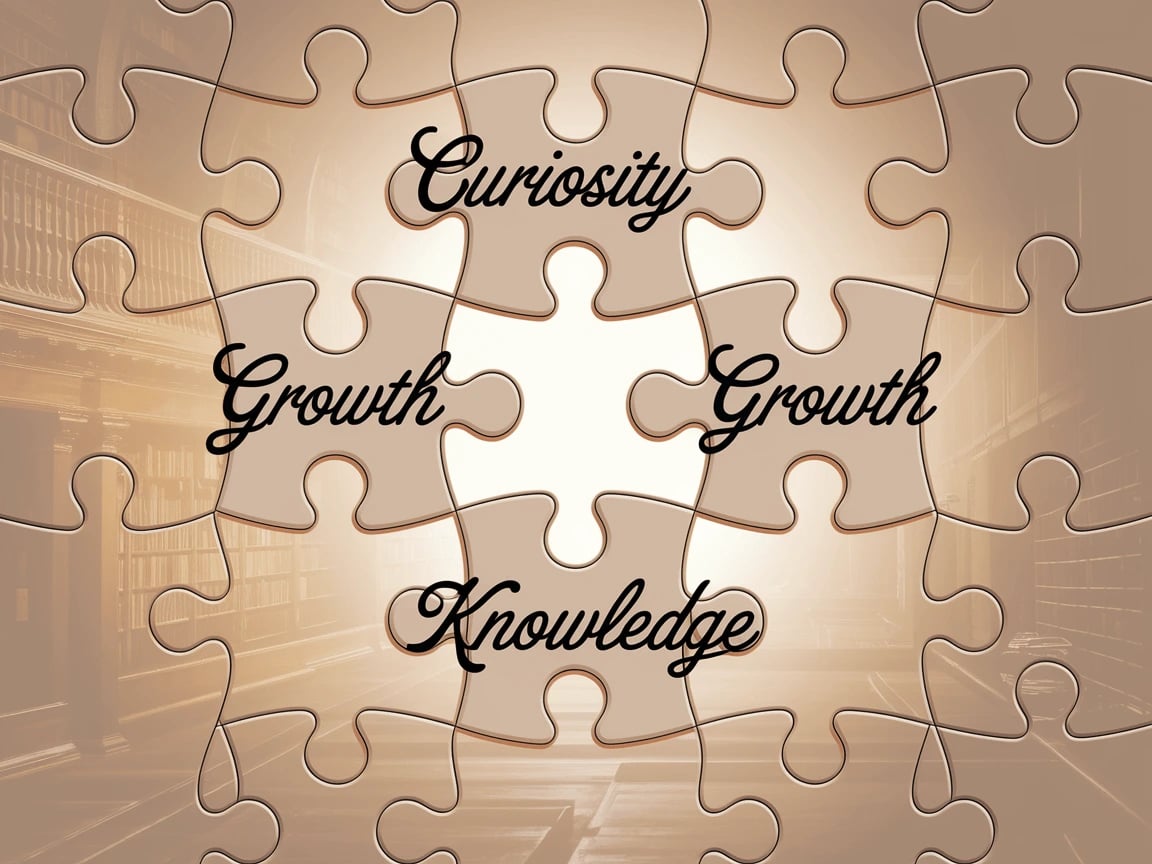Imagine a world where learning is a continuous journey, with each day offering a chance to broaden your understanding. Embracing lifelong learning keeps your mind sharp and vibrant year after year as you get older. This post will explore ways to maintain that enthusiasm for knowledge and growth throughout your life.
The Importance of Lifelong Learning
Lifelong learning is more than just a buzzword. It's a vital part of personal and professional growth. But what does it really mean? At its core, lifelong learning is the ongoing, voluntary, and self-motivated pursuit of knowledge. It's about staying curious and open to new ideas, no matter your age or stage in life.
Understanding What Lifelong Learning Involves
So, what does lifelong learning look like? It can take many forms:
Formal education, like degrees or certifications
Informal learning, such as reading books or attending workshops
Online courses and webinars
Mentorship and coaching
Each of these methods contributes to your growth. Think about it: when was the last time you learned something new? Maybe you picked up a new hobby or explored a different field at work. These experiences enrich your life and expand your horizons.
The Impact of Continuous Education on Personal Development
Continuous education plays a significant role in shaping who you are. It can:
Enhance your skills and knowledge
Boost your confidence
Open up new career opportunities
When you invest in your education, you invest in yourself. For instance, learning a new language can improve your communication skills and cultural understanding. This not only makes you more marketable but also helps you connect with others on a deeper level.
Moreover, research shows that lifelong learning can enhance happiness. Engaging in new experiences stimulates your brain, keeping it active and healthy. It’s like a workout for your mind! Just as physical exercise strengthens your body, continuous learning strengthens your cognitive abilities.
Why a Growth Mindset is Crucial for Learning
Have you ever heard of a growth mindset? It’s the belief that you can develop your abilities through dedication and hard work. This mindset is crucial for effective learning. Here’s why:
It encourages resilience in the face of challenges.
It fosters a love for learning and self-improvement.
It helps you embrace feedback and learn from mistakes.
When you approach learning with a growth mindset, you’re more likely to take risks and step outside your comfort zone. You might ask yourself, “What can I learn from this experience?” instead of thinking, “I can’t do this.” This shift in perspective can lead to amazing opportunities.
As Nelson Mandela once said,
"Education is the most powerful weapon which you can use to change the world."
This quote resonates deeply in the context of lifelong learning. Education empowers you to make informed decisions, advocate for yourself, and contribute positively to society.
Benefits of Lifelong Learning
Let’s take a moment to highlight some key benefits of lifelong learning:
Promotes adaptability: In a rapidly changing world, being adaptable is essential. Lifelong learners can pivot and adjust to new circumstances more easily.
Combats cognitive decline: Engaging your brain in new activities can help keep it sharp as you age.
Enhances happiness: The joy of learning can lead to a more fulfilling life.
Embracing lifelong learning is not just beneficial; it’s essential. It keeps your mind engaged, your skills relevant, and your spirit alive. So, what will you learn next? The possibilities are endless!
Creative Ways to Engage Your Mind
Are you looking for ways to keep your mind sharp and engaged? You’re not alone. Many people seek out activities that challenge their thinking and expand their horizons. Engaging your mind creatively can be as simple as picking up a new hobby or exploring new cultures. Let’s dive into some exciting options!
1. Exploring Hobbies That Challenge Your Cognition
Hobbies are more than just a way to pass the time. They can significantly enhance your skills and improve your brain function. Think about it: when you engage in activities that require critical thinking, problem-solving, or creativity, you’re essentially giving your brain a workout.
Learn a musical instrument: Playing an instrument requires coordination, memory, and creativity. It’s a fantastic way to stimulate your brain.
Try puzzles: Whether it’s jigsaw puzzles, crosswords, or Sudoku, these activities challenge your cognitive abilities and keep your mind sharp.
Join a book club: Discussing literature with others can enhance your understanding and expose you to different perspectives.
Each of these hobbies not only brings joy but also fosters mental agility. So, why not give one a try? You might discover a hidden talent!
2. How Travel Can Serve as an Educational Experience
Travel is not just about seeing new places; it’s an opportunity to learn. When you step outside your comfort zone, you expand your cultural horizons and gain knowledge that you can’t find in books.
Experience new cultures: Every destination has its unique customs and traditions. Engaging with locals can provide insights into their way of life.
Try new cuisines: Food is a gateway to understanding a culture. Cooking classes abroad can teach you about local ingredients and cooking techniques.
Visit historical sites: Walking through history can be a profound experience. It’s a chance to connect with the past in a way that reading can’t replicate.
Traveling can ignite your curiosity and inspire a lifelong love of learning. Have you ever thought about how a trip could change your perspective? It’s worth considering!
3. Incorporating Technology and Online Courses
In today’s digital age, learning has never been more accessible. Technology offers a plethora of resources that can help you explore new subjects from the comfort of your home.
Online courses: Websites like Coursera and Udemy offer courses on everything from philosophy to coding. You can learn at your own pace.
Podcasts and webinars: These are great ways to absorb information while multitasking. You can listen while cooking or exercising!
Educational apps: There are apps designed to enhance your learning experience, whether it’s through language learning or brain-training games.
With so many options available, you can tailor your learning experience to fit your interests and schedule. Isn’t it amazing how technology can open doors to new knowledge?
"The mind is like a parachute. It doesn’t work if it isn’t open." - Frank Zappa
Keep your mind open! Engage in activities that challenge you, explore new places, and take advantage of online resources. The world is full of opportunities to learn and grow.
Daily Habits for Keeping Your Mind Sharp
Have you ever wondered how some people seem to have a sharp mind, no matter their age? The secret often lies in their daily habits. By incorporating simple yet effective practices into your routine, you can keep your mind engaged and flexible. Here are some powerful habits to consider.
The Role of Reading in Cognitive Engagement
Reading is more than just a pastime; it’s a gateway to cognitive engagement. When you read, you’re not just absorbing information. You’re also improving your vocabulary, comprehension, and critical thinking skills. Think about it: every book you open is a new world waiting to be explored.
But why is reading so beneficial? Here are a few reasons:
Vocabulary Expansion: The more you read, the more words you encounter. This helps you articulate your thoughts better.
Improved Comprehension: Reading regularly enhances your ability to understand complex ideas.
Critical Thinking: Engaging with different perspectives in books challenges your thinking and encourages you to form your own opinions.
So, what’s stopping you? Pick up a book today. Whether it’s fiction, non-fiction, or even articles online, every bit counts. Remember, "An investment in knowledge pays the best interest." - Benjamin Franklin.
Mindful Practices: Meditation and Reflection
In our fast-paced world, it’s easy to overlook the importance of mindfulness. Mindful practices, such as meditation and reflection, can significantly enhance your focus and clarity. Have you ever tried sitting in silence for just a few minutes? It can be surprisingly refreshing.
Here’s how mindfulness can benefit you:
Enhanced Focus: Regular meditation trains your mind to concentrate better. This can lead to improved productivity in your daily tasks.
Increased Clarity: Taking time to reflect helps you process your thoughts and emotions, leading to clearer decision-making.
Consider setting aside just five minutes each day for mindfulness. You might be amazed at the difference it makes. It’s a small investment that yields significant returns.
Setting Learning Goals and Tracking Progress
Setting learning goals is another crucial habit for keeping your mind sharp. Goals give you direction. They motivate you to pursue knowledge actively. But how do you set effective goals?
Be Specific: Instead of saying, "I want to read more," specify how many books you want to read in a month.
Make it Measurable: Track your progress. This could be as simple as keeping a checklist.
Set Achievable Goals: Ensure your goals are realistic. This will keep you motivated and prevent frustration.
When you set achievable goals, you’re more likely to stay committed to your learning journey. Each small victory boosts your confidence and encourages you to keep going.
Incorporating Varied Activities
Daily habits can greatly influence your capacity for learning and mental sharpness. By incorporating varied activities, you keep your brain engaged. Think of it as a workout for your mind. Just like your body needs different exercises to stay fit, your brain thrives on diverse challenges.
Consider mixing up your routine. Try puzzles, learn a new language, or even take up a musical instrument. The possibilities are endless. Each new challenge stimulates your brain in unique ways, enhancing your overall cognitive function.
Cultivating daily habits that promote cognitive engagement is essential for maintaining a sharp mind. Reading expands your vocabulary and critical thinking skills. Mindfulness practices enhance focus and clarity. Setting achievable learning goals motivates you to continue your journey of growth. By incorporating these habits into your daily routine, you invest in your mental agility and overall well-being. So, what will you start doing today to keep your mind sharp? The choice is yours!




